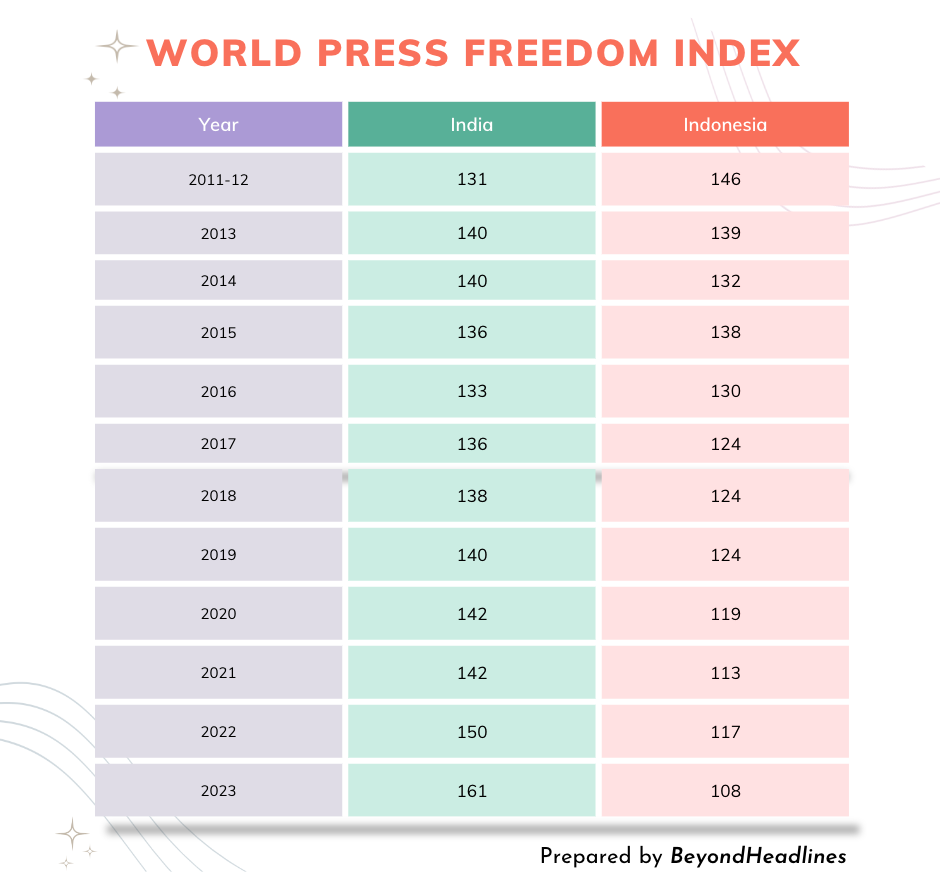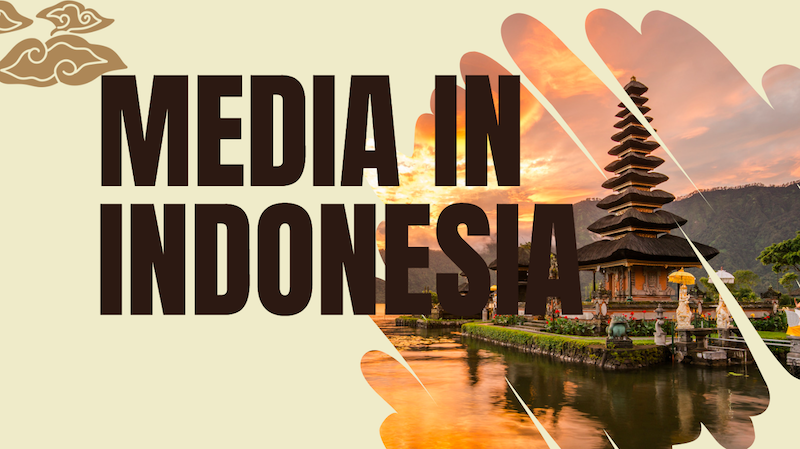Recently, I met an Indonesian friend. After a long conversation about various topics, he abruptly asked me about the current status of Indian media, but I was more interested in learning about Indonesian media than I was in informing him about Indian media. I had a lot of questions running through my mind. Out of curiosity, I only wanted to know the answers to these questions that day. Because I read in several reports published in the Indian media that the freedom of the media in Indonesia is in jeopardy and things will get worse in the coming days due to the new criminal code that the Indonesian government recently introduced. The media reports claimed that the implementation of this criminal code would take away the freedom of the media like that of India, which slips to the bottom of the rankings in freedom of the media every year.
My Indonesian friend disclosed that it is a fact that the media in Indonesia is not entirely free; of course, there is government interference, but the condition of the media has definitely improved in the last few years. He cited the Press Freedom Index to support his point. However, he added that there are still incidents of violence against journalists. Government regulation, which is frequently used to restrict the press’s work, presents a difficulty for journalists. When I looked at last year’s Press Freedom Index released by Reporters Without Borders, I found out that there has indeed been some improvement in Indonesia’s Press Freedom Index over the past few years. In the years 2011–2012, Indonesia was ranked 146th out of 180 countries on the list. In 2022, this position has improved to 117th, while earlier in the year 2021, Indonesia was ranked 113th out of 180 countries.

Freedom of the press in Indonesia is based on Article 28F of the 1945 Constitution of the Republic of Indonesia, which protects the freedom to use various media to receive, possess, store, process, and disseminate information. Following the reform period in 1998, Indonesian state laws that were passed explicitly outlined the legal foundation for media freedom in Indonesia.
In fact, the definition of media freedom in Indonesia has varied and been somewhat inconsistent under each administration. Over time, there have been many changes in the media in each era. During these developments, it is said that the current government’s policies and performance can be transparently disclosed to journalists. And it is acknowledged that everyone has the right to know all the information about themselves without any hindrance. According to Article 4 paragraph 1 of Law No. 40 of 1999 on the Press, “Freedom of the Press is guaranteed as a fundamental right of the State.” This phrase suggests that the press is free from restrictions, bans, and pressures to guarantee the public’s right to information.
What is written on paper is not always what we get to see in reality; therefore, in order to better grasp what Indonesians think of this, I talked to a few more friends. Most of them said that the mainstream media is largely under the control of the government, but other media houses that are run by NGOs and other organizations are doing well quite independently. A friend emphasized that environmental issues are often taken up by these media, and they are able to bring forth the issues that concern everyone.
He also highlighted the significance of the use of social media, which empowers youth and upright citizens. However, he also mentioned that even on social media, self-censorship is common. Despite all these concerns, social media still stands out as a good tool for citizens and members of civil society to raise their voices. After interacting with them, I realized that, just like India, the specialty of Indonesia is its diversity. It is a country where hundreds of languages are spoken, and it hosts people of different origins with various cultures. Such a reality poses a challenge for the media in Indonesia to represent and voice such diversity.
Today, over 300 newspapers are published in Indonesia, where the number of journalists is estimated at 100,000. With many privately owned networks, TV is a significant news source. As a result of their geographic isolation, most Indonesians rely on the radio to stay informed about the news. In addition to Bahasa Indonesia, there are more than 3,000 radio stations that broadcast programs in roughly 20 additional languages. The medium most Indonesians trust is the radio, since it requires less capital. In the meantime, there is a lack of advertising in online media, which results in low journalistic standards.
The role of the media is very important in shaping the mindset of any society. Especially in today’s era of digital information, it is crucial that the media convey accurate information to the people of a country; neither the news we report nor the normal life of anyone should be interfered with by this information. It is always preferable to respect a journalist’s privacy and other fundamental rights. Of course, the freedom of the media should also guarantee that democracy can function efficiently for the benefit of the populace. As we know, the media is the fourth pillar of democracy. In such a case, the freedom of the media is not only for the good of the journalists but also for the good of the people and the betterment of society as a whole.
When I wrote this article, I had the hope that I would share it with people when the ranking of India’s world press freedom index will improve this year. And that I will share with my Indonesian friends that the condition of our media is still better, but unfortunately, the ranking of India’s press freedom has gone down to 161st, and Indonesia has improved it, and its rank is now 108th. I am wondering if I get to have an interaction with Afghan friends on the same topic: what will I tell them? Probably I will have to quote our Foreign Minister, S. Jaishankar, who said, “Afghanistan was freer than us. Can you imagine? Look, these are all I mean; I see the democracy index, freedom index, religious freedom index, and press freedom index.”
Afroz Alam Sahil is a journalist and author. He can be contacted at @afrozsahil on Twitter.






















